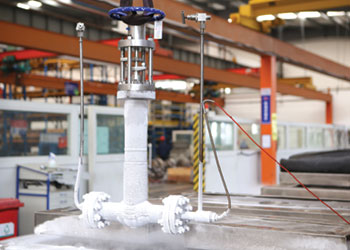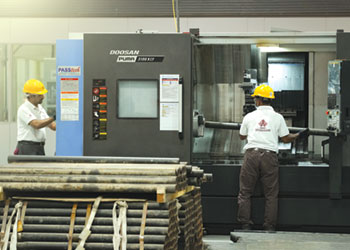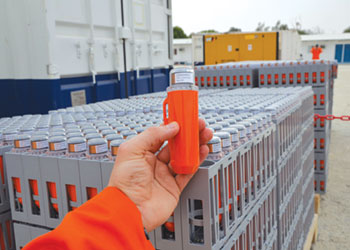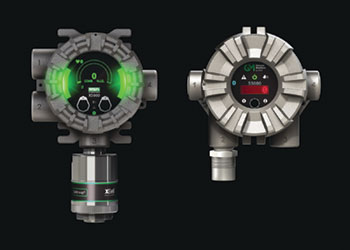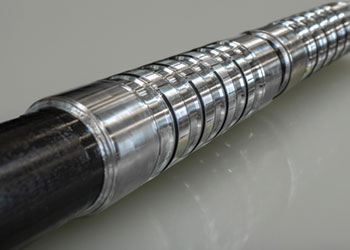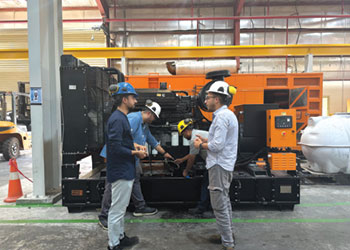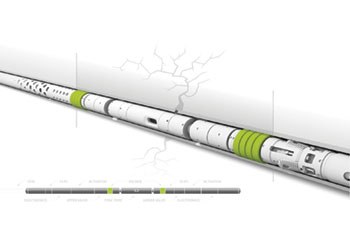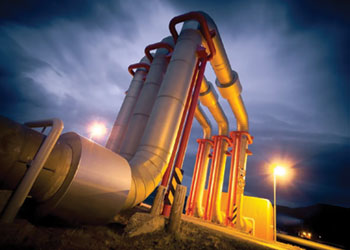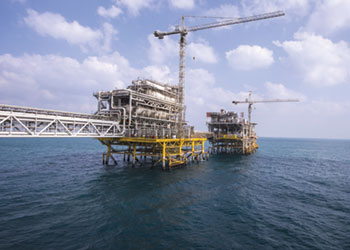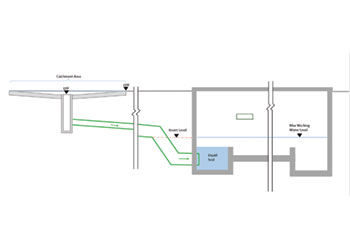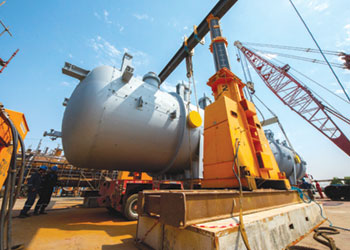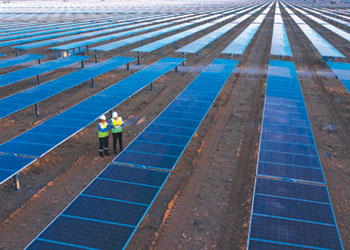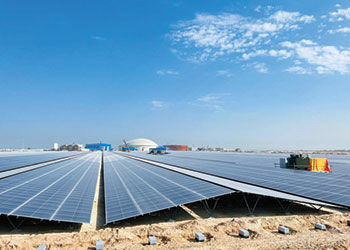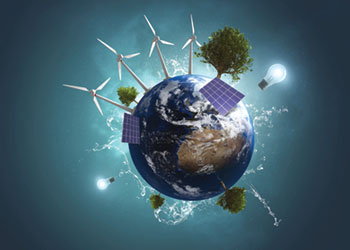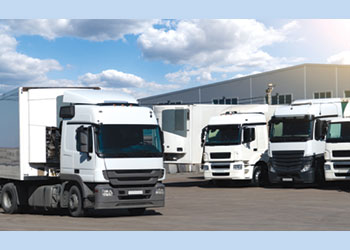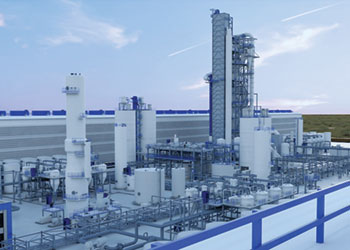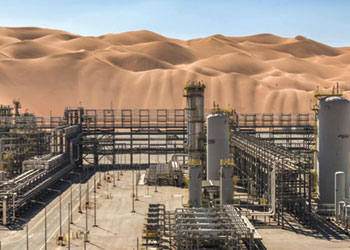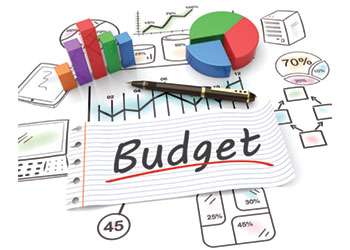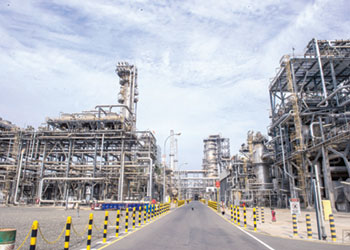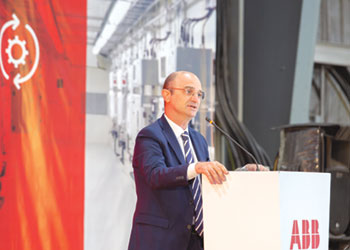
 Lummerich ... championing hydrogen production
Lummerich ... championing hydrogen production
Hydrogen (H2) stands to play a key part in tackling the world’s energy challenges. With global electricity consumption growing at record rates, hydrogen is not only one of the future leading options for storing energy, it can also be used together with oxygen directly as fuel or to generate electricity.
Current estimates by the International Energy Agency (IEA) suggest that global electricity consumption could double over the next decade, especially as more and more industries transition to fossil-free production.
 |
|
Salwen ... offering solutions in hydrogen production |
This will require both a rapid expansion of the overall electricity production capacity and better utilisation of the surplus electricity generated by renewable energy sources.
HYDROGEN IS AN EFFICIENT ENERGY CARRIER
Hydrogen can play a key role in balancing out the peaks and troughs in the electricity supply. It is the most abundant element in the universe and an efficient energy carrier. It is not a primary energy source, but highly versatile and can be used to store, transport and provide energy.
Hydrogen is produced by splitting water molecules into hydrogen and oxygen. This can be done in different ways; either in a steam generator from non-renewable energy sources or, for example, with electrolysis from renewables such as wind or solar power. The latter is often referred to as green hydrogen and the carbon footprint is close to zero.
Electrolysers are a critical technology to produce hydrogen from renewable electricity. The capacity for hydrogen production is accelerating at a rapid pace.
Surplus electricity can be converted into hydrogen and stored, thus enabling the excess solar power generated during the summer to be utilised in winter, for example.
Potentially, when gasified or liquefied, it can be transported from where it is produced over long distances via pipelines or by truck to where it is needed most.
'Ammonia is a great hydrogen carrier and also a possible way to transport the hydrogen from A to B,' says Tobias Lummerich, Global Industry Manager Hydrogen, Alleima.
APPLICATIONS ACROSS SECTORS
Hydrogen can be used across various applications from mobility to heavy industry, directly as a combustion fuel to generate electricity, or as backup power, thereby helping to decarbonise transportation and industries.
A promising way in which to use hydrogen as a fuel source is in the form of a hydrogen-powered fuel cell.
A fuel cell converts the chemical energy from hydrogen and oxygen forming water (H2O) to electrical energy. It is a clean form of energy with electricity, heat and water being the only products and by-products.
'The heavy-duty vehicle segment currently has a great potential to utilise hydrogen fuel cell technology. There is also an increasing interest from the steel industry and other large CO2 emitters such as cement and aluminum,' Lummerich continues.
'The hurdles are still how to produce enough hydrogen, the cost of producing it which is still pretty high and how to distribute it in an efficient way.'
Alleima is active in the hydrogen space and offers materials, products and solutions suitable for hydrogen production, distribution as well as hydrogen usage like in fuel cells and electrolysers.
'It can be a hurdle to choose the optimal grade for the specific application. With our extensive experience in materials technology, and in-house R&D and testing capabilities, we can work together with our customers to recommend the optimum alloy for the hydrogen application, and explain how alloys behave in different environments,' says Johan Salwen, Technical Marketing Specialist, Alleima.








































































